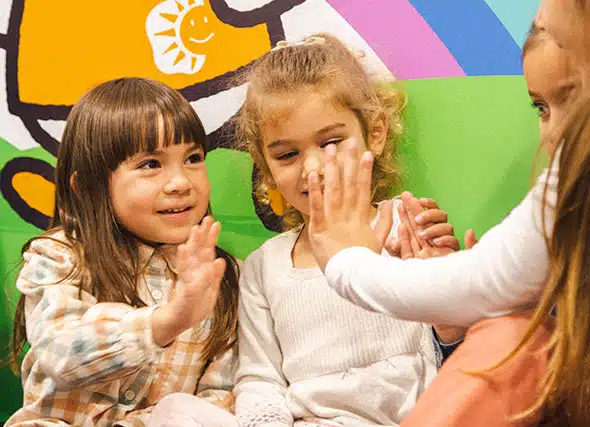
For parents with a child under 5, here’s what you need to know:
Engaging young children during lockdown can be challenging and frustrating for parents. Many struggle to find effective ways to keep their children entertained. Parents face the added pressure of becoming their child’s sole teacher. They may feel unequipped and unqualified for the role. Some wonder why they are expected to do a teacher’s job. They seek guidance on adapting to this challenging time.
The truth is, every parent is their child’s first and best teacher, they just may not know it yet.
Why are parents better teachers for a child under 5?
The answer lies in the innate attachment and history that parents share with their child.
Children depend on parents for survival and interpret the world based on their reactions. Social and emotional development peaks from birth to age 2, despite limited speech and socialization abilities.
With a child under 5, the brain undergoes significant growth and forms foundational neural networks. Post this period, learning is built upon this initial brain structure. Extensive studies reveal that experiences and stimulation during this period impact long-term outcomes, including mental and physical health, successful relationships, and careers in adulthood.
It’s a crucial and limited opportunity. Parents understand its significance but lack guidance on maximizing it. The formative years can be overwhelming and stressful, with parents focusing on survival and adaptation.
So what can parents do now that they are faced with the task of being their child’s first and best teacher?
There are three things that are critical to making the most of your quality time together:
The first is acceptance
Children’s attachment to their parents, being the first people in their lives to love and care for them, means that children will always prioritise receiving love, acceptance and praise from their parents first – more than anyone else in their lives. Acceptance for children is akin to unconditional love. To accept your child means to be present with them and not only see them for who they are right now but to be okay with where they are in the timeline of their own unique development. To accept your child in the early years means to know that they are changing but to not become frustrated or dismissive if they are not good enough right now. When children don’t feel good enough this changes the chemistry of their brain to elicit a stress response and interrupts their development, prolonging the desired improvement.
The second is talking to and with your child under 5
Something that the Harvard Centre of the Developing Child refers to as “serve and return” interactions. The child “serves” by directing their attention to something they would like to learn about, and the parent “returns” the serve by telling them about it. Parents can also initiate the serve by directing their child’s attention and engaging them in a conversation or game about it. Parents that talk and listen to their child often will not only encourage their child’s natural curiosity and love of learning, but increase their emotional and mental intelligence too. Additionally, actively observing and listening to a child shows them how to respect and listen to their parent.
The third is providing stimulation
Children have growing brains and a natural thirst for learning. Stimulation can come in many forms, from early exposure to many different topics, places and experiences to engaging in play that includes age-appropriate challenges such as puzzles, finger-tip training and matching games. The myth about early exposure being detrimental only holds true if the parent’s attitude is one that pressures the child into perfection or achievement. Simply exposing children to games and allowing them to try and fail without judging them is key for building healthy self-esteem and independence. When parents are present and encouraging of children when they are met with the emotional challenges of trying something new, children will also learn to better manage their emotions.
More tips on how to be your child’s first and best teacher:
- Open yourself to the idea that you can do it and be kind to yourself as you try
- Talk to your child often and about many topics – including emotions, numbers, colours, patterns, alphabet, shapes and time
- Get down to your child’s eye-level and observe what they are looking at
- Vary the volume and pitch of your voice during play to grab their attention
- Use exaggerated facial expressions when demonstrating activities
- Don’t be afraid to look and feel silly when playing together with your child under 5
- Pay more attention to the things they are doing right rather than the things they are doing wrong
- Be generous with affection when your child is doing something you want them to do
- Keep in mind that a child under 5 – attention span is their age + 1 minute and take regular breaks
- When giving instructions, tell them what to do as opposed to what not to do “Put your feet on the floor” is much more affective than “Stop jumping on the chair”
- Instructions are retained better by children if it is made into a song or game
- Use specific praise. “I like the way you packed up afterwards” is more effective than “Good job”
- Spend some time experimenting with a structured routine for your child, once you find a routine that works – stick to it!
- Keep engagement up by keeping it fun! Learning together is a great way to bond with your child!


